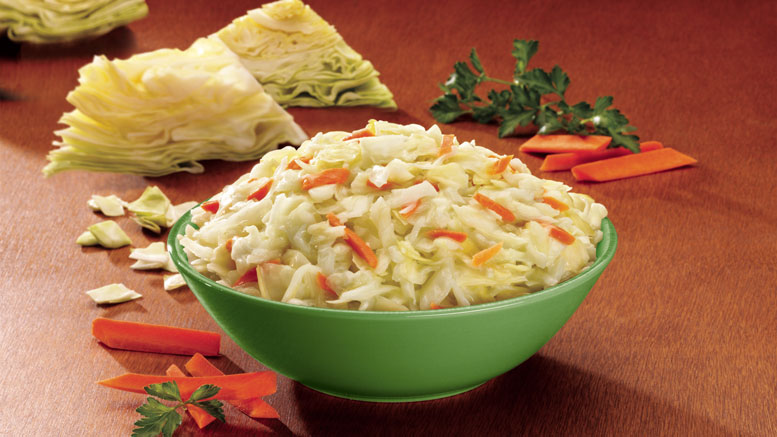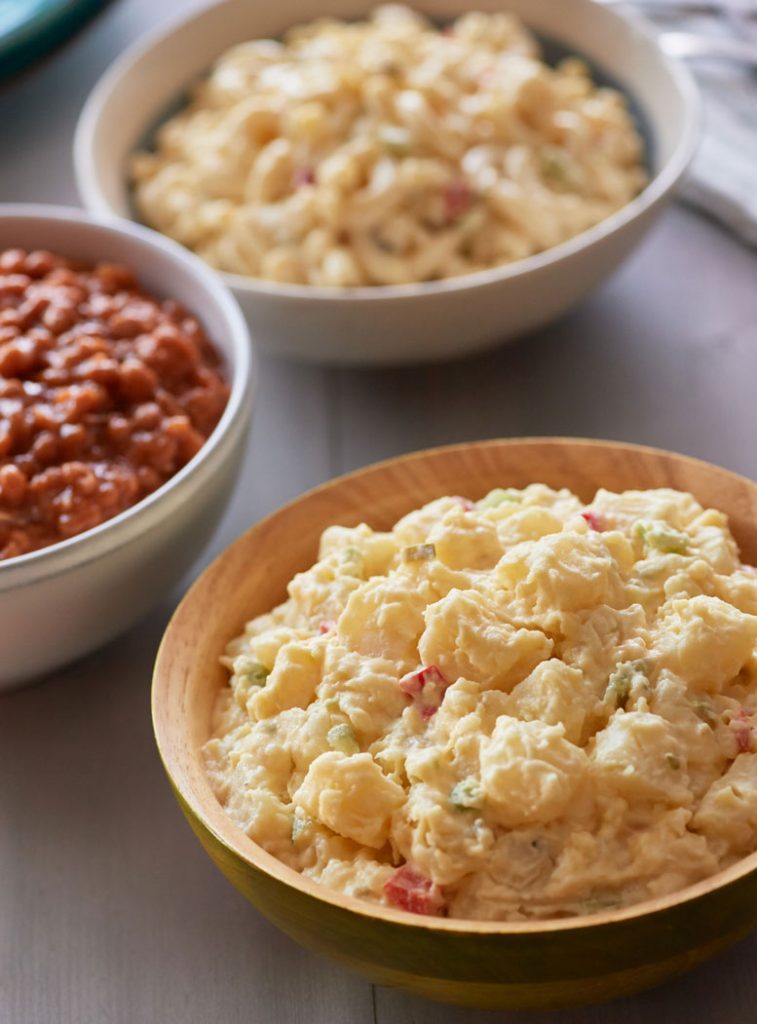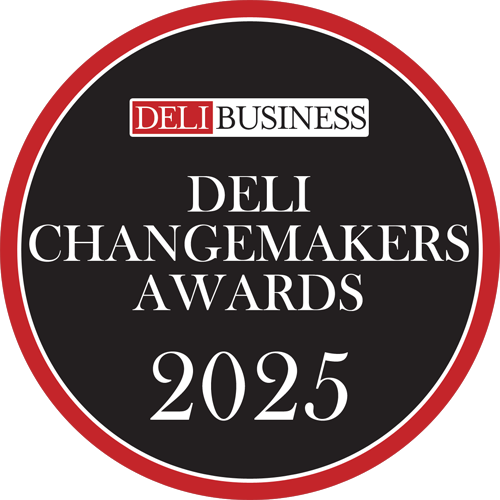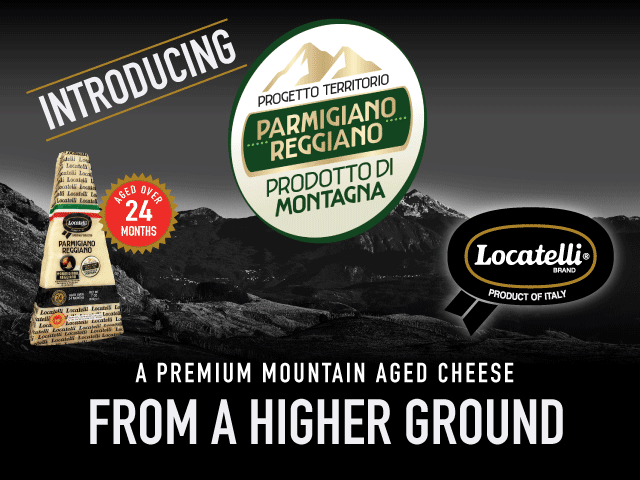Propelling Private Label
October 9, 2024 | 9 min to read
In an era of rising costs, deli private-label products are thriving, offering perceived value over national brands. The Private Label Manufacturers Association reports that one in five grocery items is now a store brand, with dollar sales rising by 4.7% in 2023. Retailers are increasingly embracing unique, quality offerings that resonate with local tastes, while consumers find higher profit margins and improved customer loyalty. Innovative marketing and merchandising strategies further strengthen this trend, making private labels a key player in the deli sector.

Deli departments are prime real estate for a wide range of private-label products.
In these times of high inflation, deli private label products have received a boost. This is because, not only do these items provide a perceived better value than national brands, but the selection has substantially increased in recent years.
According to the New York-based Private Label Manufacturers Association (PLMA) one of every five food or non-food grocery products sold in all outlets across the U.S. carries the retailer’s name or own brand and was supplied by a store brand manufacturer.
“When private label began in our category, it was associated with ‘bargain food,’” says Josh Knott, president, Knott’s Foods, Inc., St. Paris, TN. “This equated to the most economical recipes for consumers, not the best quality or taste. Most private label brands have moved past this stigma by not awarding contracts based on price alone, but an equation of different factors that get consumers a quality product at an affordable price.”
During 2023, store brands continued to be the brightest light in grocery food and non-food, according to the PLMA. Dollar sales rose by 4.7%, compared to a gain of 3.4% for national brands. Store brand dollar share moved up to 18.9%, ahead 0.2 points from 2022, a new high. Total store brand dollar sales in 2023 were at $236.3 billion, an increase of $10.1 billion from 2022, according to Chicago-based Circana Unify (formerly IRI and NPD Group). Annual store brand dollar sales have increased by 34% over the past four years.
“Private label allows retailers to directly align with specific consumer needs through their assortment and fill national brand offering gaps of national brands,” says Darren Jones, director of private brands, Reser’s Fine Foods, Beaverton, OR. “Within the deli, private brand can target culinary nuances that resonate with local fare.”
SEGMENT EVOLUTION
In the past, private-label products were viewed as generic, low-cost alternatives to national brands.
“That’s since evolved to many private brands taking a position of exclusive, quality and unique offerings that consumers seek out,” says Jones. “Reser’s Fine Foods collaborates with retailers to identify the best product mix, merchandising plans, consumer messaging and pricing strategy for the store’s private brands. This joint effort helps deliver optimization to the deli space.”
As a result, Reser’s deli retail partners typically incorporate the most popular varieties of refrigerated items into the private brand lineup.
“Those core varieties, such as potato salad, macaroni salad, and coleslaw, represent top sales volume and cater to a broad demographic,” says Jones. “Those attributes are ideal for private brands.”
Reser’s often works in collaboration with retailers to create unique recipes, which may adjust slightly to capture local flavor preferences or align to the ingredient requirements of private label brands.
“Packaging and at-shelf messaging are unique, aligning with the private brand focus and consumer needs in store,” Jones explains.
In this market, private label products are beneficial due to their ability to provide superior quality at reduced costs in contrast to national brands.
“Various meats, deli foods and cheeses are favored by shoppers, as they offer budget-friendly alternatives without sacrificing quality and taste,” according to Scott Caliebe, chief financial officer of Pine River Pre-Pack, Inc., Newton, WI. “Retailers benefit from increased profit margins and customer loyalty by selling these private label items.”
Pine River’s cheese spreads are offered under various retailers’ brands. “We manufacture for various cheese companies and distributors across the country,” says Ian Behm, president. “Our private label offerings are the same high standards of excellence as the Pine River brand, allowing us to provide unique, branded products that enhance our customers’ product lineups.”
Delis should carry private label items because they offer several advantages that significantly benefit their business. By providing unique products that cannot be found elsewhere, delis can differentiate themselves from the competition and build stronger customer loyalty, says Caliebe at Pine River. High-quality private label items often lead customers to associate the quality of these products with the business itself, fostering trust and repeat business. Additionally, private-label products typically have higher profit margins compared to national brands, boosting profitability.
Adam L. Michaels, chairman and chief executive officer of Mama’s Creations, East Rutherford, NJ, doesn’t see a quality difference between private label and branded items in the deli. The company provides a line of private label meals, salads and sandwiches to supermarkets.
“The deli space is doing well with private label due to the product diversity and ethnic flavors, which is showing the most growth,” says Michaels. “Unlike the center aisle, deli private label provides the same quality, if not better, than branded products; ours are the same exact items.”
“The deli space is doing well with private label due to the product diversity and ethnic flavors, which is showing the most growth.”
He adds that it’s the variety of product available that is trending, with more diverse global influences.
– Adam L. Michaels, Mama’s Creations, East Rutherford, NJ
PRIVATE LABEL BENEFITS
Delis that create a successful private label culture can see many benefits across the board.
“[This includes] increased traffic flow, customer loyalty, better control over sales and profitability, and a unique identity set apart from competition,” says Jones at Reser’s. “One of the challenges is that fresh food trends change rapidly. Staying relevant in the deli requires constant attention to those trends and collaborating with a nimble partner.”
It’s also important to develop a strategy that works for packaging, assortment and pricing.
Reser’s shares insights with deli customers to help create a successful private label program.
“Private label programs provide the opportunity for retailers to distinguish themselves in a competitive environment,” notes Jones. “A quality, robust offering can lead to differentiation that drives additional traffic flow to the deli and fosters loyalty with shoppers seeking out a brand that they trust.”
He adds that using a dual-brand approach that includes both private and national brands provides pricing flexibility, exclusivity and performance optimization.
Yet there are challenges in this segment, such as significant resource investments, managing production demands and consistent quality control to maintain a strong brand, notes Caliebe at Pine River. Any quality or supply chain issues can damage a reputation.
One of the biggest challenges in this segment is proving to customers that private-label items are worth trying.
“Consumers have an emotional attachment to certain national brands and products that they have grown up with or have been purchasing for a considerable time,” says Knott at Knott’s Foods. “If you can find a private label supplier that gives you a good cost and provides a superior product in quality and taste, you’re better off to build a relationship with them than to market that label every year from a cheaper supplier.”
Also, some consumers still have an expectation that many of the private-label deli products are made at the store level. This helps stores build equity in signature brands.
“With a majority of consumers visiting a supermarket due to its unique items, private label provides a way to differentiate offerings,” says Michaels at Mama’s Creations. “These items will draw in customers.”
MARKETING & MERCHANDISING
In addition to offering variety and quality products, visibility with marketing and merchandising should take precedence.
“The overall retailer private brand position aligns to the retailer’s private brand strategy throughout the store, with adjustments for visibility in each department,” says Jones at Reser’s. “For example, if the deli is targeting value, a retail price distinction without sacrificing quality is important.”
He adds that the most popular varieties and sizes for comparable private brands should be merchandised adjacent to national brand counterparts.
“If the private label brand is more distinctive and unique, merchandising and callouts for those differences becomes more important,” notes Jones.
To effectively market and merchandise private label products in delis, highlighting quality and value is crucial, says Caliebe at Pine River. In-store tastings can allow customers to experience the superior taste and texture of the products, while attractive signage emphasizing competitive pricing can draw attention. Unique displays and cross-merchandising with complementary items can enhance visibility and encourage higher sales. Strong, cohesive branding and packaging that reflect the deli’s brand identity can build customer loyalty, and leveraging social media can expand reach and engagement.

Pine River assists with promotional materials and content, helping delis highlight the quality and benefits of the products. Additionally, Pine River’s R&D team refines products based on customer feedback. Some of the most recent additions to the Pine River lineup are Maple Bacon, Spicy Pimento and Italian Truffle.
Chauncey Behm, director of operations, states, “I really enjoy the culinary creative aspect, especially the new flavor developments this year. It’s a unique part of what makes us special. We embrace that gourmet experience and creativity, it’s who Pine River is.”
Promotions can drive sales and entice consumers who normally buy national brands to try private-label products.
“But in my opinion, the key to getting into consumers’ baskets and refrigerators is attractive and informative packaging,” says Knott. “If the packaging looks cheap, the consumer will associate it with cheap quality.”
Michaels at Mama’s Creations agrees, adding that variety and value are key.
“The retailer strategy has to be about quality and freshness,” he says. “We have some items we send in bulk that require labor, and we also have meals for one that can be put right on the shelf. In the middle, we have meal kits that can be easily prepared for store foodservice programs. Delis need to look at the labor situation to see what private label offering works best, since in-house capabilities will drive the solutions.”
If a private label brand isn’t trusted or consistent, or has been damaged or marred by bad circumstances, it won’t be a success.
“Consumers will not purchase a brand that they haven’t grown to believe in or have heard negatively about,” says Knott.
By the same token, private brands can be another helpful tool to foster consumer loyalty if the retailer delivers what their consumers are looking for.
“The retail field is crowded,” says Jones at Reser’s. “As deli departments aim to distinguish themselves, private brands with a dual brand strategy are one of the most important ways to do this.”
Private label products are not for everyone. To effectively market and merchandise private label products in delis, highlighting quality and value is crucial, says Caliebe, as their success depends on several factors.
Retailers with strong brand loyalty and a deep understanding of their customer base can significantly benefit from private labels. These products allow retailers to offer unique, high-quality items at competitive prices, which can enhance customer satisfaction and loyalty. However, retailers without a clear brand identity, or those unable to invest in marketing and quality control, may struggle to make private labels successful.
The future for private label looks bright, particularly among younger consumers. In a 2024 PLMA study, more than half of the Gen Z shoppers who participated said they “always/frequently” choose a place to shop due to its store brands, 67% are “extremely/very” aware of store brands; 64% buy store brands “always/frequently;” and 56% are “extremely likely/likely” to experiment with store brands to find “best value.”
In other words, private label is a deli draw that is here to stay.
68 of 128 article in DeliBusiness Fall 2024


